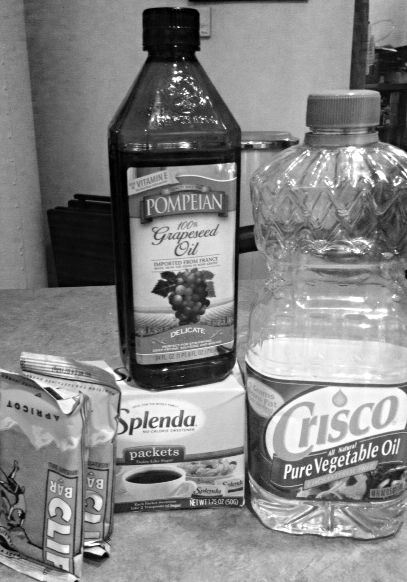
Hello friends. We’ve made it to the last part of the Happy Stomach Series. We've talked about not drinking water with meals, dove into good bacteria with fermentation, and challenged our overly processed diet. I am so excited to report that I've received posts, texts and words from a handful of readers who told me that these tips have made them feel better. Please keep them coming! I want to know your health queries so I can obsessively research them for you.
Anyways, I couldn’t think of a more fitting ending than exploring the infamous offender of all digestive woes:
GLUTEN.
If gluten is the enemy, then “gluten-free” is our new hero. The phrase is popping up on food labels and restaurant menus left and right. Everybody and their mother suddenly has a gluten intolerance. But ask most people what it is and why it’s bad, and they won’t have a good answer for you. Why? Because we’re confused. Where did this mystery ingredient come from? Why is it suddenly such a problem? Is it an epidemic? Do we all need a gluten-free diet?
I don’t know about you, but I could use a refresher course. Starting with, what the hell is it?
Gluten is a protein found in wheat and grains. It's the sticky GLUe-like part that holds together the nutrients, helps dough rise and provides chewy goodness to breads.
Right off the bat, it sounds pretty wonderful, right? So why is it so bad for our digestion?
Well there's this thing that they've discovered called "gluten sensitivity." This term covers a spectrum of disorders, from the minor-ly agitated stomach, to the majorly endangered celiac-diagnosed. In all of these cases, this glue-y gluten has an adverse effect on the body.
Symptoms include bloating, abdominal discomfort or pain, diarrhea, constipation, muscular disturbances, headaches, migraines, severe acne, fatigue, and bone or joint pain.
The thing is, the research is still very young. And although the medical community has figured out a way to test for celiac disease, non-celiac gluten sensitivity is a little more open for interpretation. Supposedly, all you need to do to test for gluten sensitivity is eliminate gluten from your diet. If your symptoms go away, Congratulations! You are gluten sensitive.
It's so subjective. So abstract. Sounds like a hypochondriac's dream. I had a hard time believing in these claims. And an even harder time when I noticed all of the processed gluten-free goodies popping up in grocery stores everywhere (a topic for another day).
Is it really possible that so many of us have been silently suffering with digestive issues all this time, and only now that we have pinned a culprit are we admitting the problem?
The question on my mind is:
Is gluten bad for every body's digestion?
Short answer: Possibly
Long answer:
It is if you have gluten sensitivity and just don’t know it.
Gluten sensitivity is predicted to be severely under-diagnosed (1). Most people have gotten so used to indigestion and the other problems that come with gluten that they don’t recognize it as a problem. In this regard, the gluten-free craze is a good thing because it’s causing people to question their bodies’ ailments. Unfortunately, while celiac disease can be tested, gluten sensitivity cannot. Gluten elimination is the only way to diagnose. If you are experiencing the aforementioned digestive symptoms after you eat, it is recommended you try eliminating gluten from your diet for at least 30 days.
It is in this day and age because gluten isn’t what it used to be.
We don’t eat the same wheat that our parents ate. It may look the same, but it does not act the same. In order to get our wheat to grow faster and grow more, we have hybridized the grain, making it ridiculously resistant to bad weather and parasites. An estimated 5% of the proteins in this tougher grain are brand new! And these shiny new proteins are the ones causing adverse reactions in the human body (2).
Besides the way we grow it, the way we prepare it is also different. Grains used to be soaked, sprouted, fermented and baked using slow yeast. You remember the benefits of fermentation? This process actually helps digestion and increases nutrient intake. That is not the case in our bleached, quick-bake wheat today. Basically, it's not only more dangerous, but less nutritious.
So we've got this weather-resistant, quick-rising, de-nutritionized wheat. And you know what we're doing with it? Eating more of it! It's in our breakfast, lunch, dinner, snacks and desserts. You'd be hard-pressed to find an aisle of the grocery store or a menu at a restaurant without wheat. We grew up on it. It's a major part of our diets. And it's almost impossible to avoid.
But our grandparents and great grandparents weren’t snacking on chips, crackers and granola bars throughout their day. They were eating home-cooked meals filled with meat, veggies and non-hybridized bread. I wonder, did people pop Tums back then as much as they do now?
It's not. But there are other things in grain that are bad for you.
By nature, grains contain toxins that slow down their growth on purpose to protect them from potential invaders (like birds) until they get the nutrients they need to grow (water and soil) (3). Besides gluten, these toxins include lectins and phytates. Lectins have the ability to damage the gut lining and trick you into thinking that you're always hungry (carb cravings). And phytates bind to nutrients, robbing them from your body.
It’s not if you feel no negative reactions to eating gluten (I’m a genius, I know).
I highly doubt you would have read this far down if this was the case. But if you don’t have digestive issues after a sandwich, pasta, cracker or cookie, then you’re a lucky son of a bitch.
Bottom, bottom line:
The other day, I was talking to a parent of a child with celiac disease. I offered my apologies, admitting that it must be hard for the 10-year-old. In response, the parent said to me,
"Hey, it's alright. Because of her celiac, she is one of the healthiest kids in her class. When you eliminate gluten, the only options that are left are the healthy stuff. And she loves it because it's all she knows."
Sure, I believe there are people out there who will continue to ingest gluten and be just fine. However, is it possible that if we all reduced the gluten in our diets that we could be better than fine? When you eliminate gluten, you replace it with veggies, proteins and good fats rather than wheats and grains. The health benefits in the former greatly outweigh the latter.
I’m never one to completely eliminate anything from my diet (unless I was forced to because I was diagnosed with celiac disease). But in the last 6 months to a year, I have decreased my gluten intake quite a lot. I’ve replaced crackers with Flackers (this awesome cracker made from flax seeds), sandwiches with salads and oatmeal with eggs. And you know what? I feel a TON better and so does my digestive system. Oh yeah, and I have lost weight. A nice little side effect.
Of course, I am far from a controlled experiment. Do I feel better because I am gluten sensitive? Or because I stopped eating the 21st Century’s warped version of wheat? Or maybe it’s because I’ve almost completely eliminated processed foods from my diet. Either way, it’s all good things. And I figured it out by listening to my body. I highly recommend it.
What do you think?
1. http://www.celiaccentral.org/non-celiac-gluten-sensitivity/
2. http://www.huffingtonpost.com/amy-myers-md-/effects-of-gluten-on-the-body_b_3672275.html







